- Home
- About
- Local groups
- Community
- News
- Resources
- Offer Support
- Contact us
FOOD GROUP
updated 26 Jun 2009
VISION: “Good and affordable food for our community”
MISSION:
1. Seed to table education
2. Rebuilding a local food culture
3. Using appropriate technology for growing, harvesting, processing, and storing food
4. Healthy soil, healthy people
5. Independence from energy intensive food.
PROJECTS:
Links to:-
Next Meetings:
To be advised.
--- Meeting Held Tuesday 21st of April 2009
Hua Whenua - Community Garden street party
Tuesday 21st of April 2009
On Tuesday 21st of April, hui was held here at Te Hauora O Te Hiku O Te Ika, Kaitaia to engage our local community with their ideas to support a community garden. A total of 19 people participated with 9 whanau residing in our surrounding community with the rest representing different organisations.
The following brief report identifies the key themes that came from our hui. These were based on key questions and opportunity for all participants to have input.
What would you like to see in the community garden?
This korero revolved not so much about the type of kai that is grown, but the methods, approaches and additional structures that form the garden.
Linking the planting to Maramataka Maori was a key theme along with the opportunity to share the methods of planting and tikanga with whanau. Additionally, it was requested that a space for some rongoa is available such as kumara hou and kawakawa as examples.
Additional features included fixed concrete chairs or tables to allow whanau to come and sit and the possibility of raised beds for people in wheelchairs to access. If the space progressed to the kura then there were other opportunities suggested, such as pizza ovens or courtyards, etc.
A key theme was to create a nice whanau social atmosphere where people not only come to work, but also to enjoy the company of one and other.
One additional theme was based around elderly whanau in the streets, who may be able to grow staples such as silverbeet but could have space for them to grow kai which may be harder to harvest
What are some of the issues you see that could arise from the community garden?
Seven key issues arose from the discussion which everyone identified was good to initiate discussion about even if we don't have solutions as yet. These are as follows.
Vandalism- The issue of the garden being vandalized was raised. Solutions included linking to the existing Te Hauora O Te Hiku security measures such as A1 security and cameras. It was also suggested that the more the whole community is involved, the more it may lessen the vandalism issue arising.
Drop off inparticipation - This concern related to the venture starting off with a lot, and then people dropping off. Solutions suggested included the benefit of keeping it small and manageable, and also of the continual opportunities for community engagement via the workshops.
Petrol tank - There was a need to identify the role that has and if there is contamination in the soil. (There is an adjacent petrol storage tank.)
Individual plots versus communal - There was a lot of discussion about this kaupapa and it was identified that it would be dependent on space available, i.e. a smaller garden would not support a lot of communal plots. People shared their experience from participating in allotments in England through to large whanau or hapu shared plots. Within this was also discussion about whanau who come in around harvest time and the role of distributing kai out in a fair manner. Both of these issues would need more discussion in the future.
Coordinator - A lot of discussion evolved around the role and the knowledge needed of a coordinator to support the ongoing progression of the community garden. An example was shared from the community garden in Kerikeri where one person is responsible for coordinating the workforce, the cycle of growing, and keeping the mahi done. It was suggested that this role could be someone who is a master gardener, or to identify elders in the community with that knowledge.
It was also suggested that the role support the development of others in the community in a capacity building role. This would ensure people in community are up-skilled and able to continue if coordinator is not there.
Putea/Funding -discussion originally related to the role of coordinator and whether this was waged or unwaged. Korero revolved around it being unwaged as the reward is not necessarily in the kai, but the working together to achieve. A suggestion made, was that funding is instead linked into the resources needed.
How could you contribute to the community garden? i.e. skills knowledge, time?
A key benefit from an integrated approach is the variety of resources that people can provide to make the garden happen.
The key resources identified from those whanau who lived in the community and at the hui, were to provide time and labour to the garden. Also to engage one or two other whanau within their streets to link-in and participate. It was recognized that relationship building does not happen within one day, or one hui, and needs to be nurtured. Everyone around the table has different networks and potential to engage others.
Resources from those participants representing different organisations, indicated who are able to provide seedlings, cuttings, links to heirloom varieties of kai, access to adult community education funding, access to garden tools, knowledge to build organic structures, and access to external funding pools.
Within the overall group there was knowledge and or access to whanau with knowledge around maramataka Maori, knowledge of best times for planting and resurging knowledge of pataka, building rua, etc.
Discussion on the space at the high school
A lot of positive discussion happened around the opportunity to grow the community garden into the land at the high school between the Adolescent Clinic and Te Hauora O Te Hiku O Te Ika. A staff member from the school discussed the opportunities to link the students with their curriculum learning, through a number for subjects. There are also opportunities to link other providers or youth groups to support. This is being followed up with the Kaitaia Board of trustees and will be discussed at the next hui.
One idea is to hold regular workshops about topics relating to gardening and kai - what topics would you like to learn about?
- - Maori Maramataka - karakia
- - Rongoa
- - Making compost
- - Planning gardens
- - Kai to preserving and cooking
- - Linking in the home ec room at the college.
Decision was made to hold the first workshop on Maramataka- at which we can engage more whanau within the community to attend. Then look to hold a following workshop on planning for the garden. A request was to look at childcare options for whanau to be able to participate.
How would you like to be informed/ kept up to date of progress?
The email network was one initial method to keep the group engaged, however the main method identified, was to ensure that the community are continually informed and have opportunities to participate, via the leaflet drop around those key streets; Redan Road, Dominion, Summerville, Okahu, Webber and Worth streets.
Additional ideas or issues
Clarification around the space being organic (hua parekore). Some identified it from a Maori tikanga around looking after papatuanuku, and recognizing or knowing the whakapapa of what goes into the ground. While all supported the gardens being organic there was also discussion about not wanting to go overboard and to identify what degree of "organic" it would be. These issues could be developed into the overall objectives from the past hui
Moving Forward
It was identified that we would hold a hui at 10am Monday 11th of May here at Te Hauora O Te Hiku O Te Ika to progress the Objectives, Terms of reference, Timeframes, and to plan the workshops - dates, kaupapa and facilitators.
--- Meeting Held on 17th March 2009
Kaupapa/ Topic Korero/Discussion Mahi/ Jobs
The plot to be used for the community garden is adjacent to the Kaitaia Hospital and the Kaitaia Secondary School.
A soil test will cost $60 – Enquiries were made and it was found that site was previously a paddock. Soil test would only be needed to see what nutrients etc required for different crops.
Planning needed for workshops
• Maramataka workshop to be held first to ensure planning incorporates optimum days for tasks etc.
21 May Thursday 10-12 at Te Hauora O Te Hiku O Te Ika
Maramataka Workshop. Ideal that this is first workshop to ensure planning incorporates optimum days for tasks/duties.
Panui to be developed
• Panui to be printed and delivered by 15 May to local residents
• Media – Northland Age and Radio Te Hiku and KCR/Kaitaia College newsletter.
3 & 4 June Building Raised Beds Workshop 10-3pm
Future Workshop Ideas – How to maintain tools. Making containers, Plants for Diabetics.
--- Meeting Held 8th December 2008
A stand at the A&P show costs $60 plus $10 for electricity. The group is looking at having a presence
Report on food co-op: We have a suitable catalogue and the next step is to set up an account. Work is still progressing on a comparison price list. It was suggested we compare Cavaliers prices (they supply bulk packs of various household groceries as well as bulk meat packs).
Community gardens: Pukepoto School is a possible site for TTK community garden as there is ideal land available there. Some of the pupils have been able to take home vegetables from the Organoponica (OP) school garden put in by Grant Steven and helpers in mid October.
FNEC has OP moulds for hire.
Our next project! We need an inclusive, non-controversial, and fun project.
Ideas put forward were:
1. Cooking workshops (using expertise of older community members).
2. Seed/seedling give-ways, seed collection and exchange.
3. List of available resources, (Bioregional database) (Is being orgaised as a project)
4. House to house to house setting up gardens.
5. Creating meals using garden produce and home produced cheese and fermented foods.
6. Permablitz in peoples gardens.
7. Organic garden safari & schools garden projects will be set up for Sept 09 (Is being organised as a project)
8. Stand at A&P show. (Is being organised as a project)
9. Book exchange.
10. Helping people, who have an economic need to grow their own food, to get started.
11. Food Garden Resource Centre at Trees Company Nursery. (is being organised as a project)
12. Organise a local foods festival at the Saturday Market to serve as the Grand Unveiling and to include festive fun events.
13. Do we need to fund raise?
It was decided that the next project to run with, is to set up a Food Garden Resource Centre at the Trees Company Nursery. This involves creating a space where people can come in a sit, relax and pick up gardening information. Brochures containing recipes for organic sprays and also food recipes will be available. Brochures are still to be compiled and any information you can provide can be sent to Chantelle at cjpieters<at>yahoo.co.uk (replace <at> with @). A lot of work needs to be done to set up the space and it is envisioned that this will take place between 25th December 08 and 5 January 09. Chantelle will email the list of jobs required to be completed to the food group. A working bee will take place there on 27th December 08 at FNEC. If you can not be there on this day, and do want to help out, let Chantelle know what you can help with and when, so that access to the centre is assured.
Chantelle also wants to display a series of posters/leaflets suggesting “Ten reasons why you should – “. e.g.:
1. Growing your own food.
2. Using organic methods etc.
It was resolved that a Bioregional Database will be researched and will be presented at our next meeting.
----Meeting held on 22nd November 2008.
The previous meetings minutes were discussed and the following points confirmed;
Vision:
The group settled on “Good and affordable food for our community” as our Vision Statement.
Our mission is:
1. Seed to table education
2. Rebuilding a local food culture
3. Use appropriate technology for growing, harvesting, processing, and storing food
4. Healthy soil, healthy people
5. Independence from energy intensive food.
Included in our mission are the following points
1. Feeding the community from locally sourced produce
2. Promote and support local growers
3. Don’t reinvent the wheel
4. Educate the community on gardening for food - based around Marae and schools
5. Land available for cropping
6. Community supported agriculture
7. Working with local retailers
8. Publish our network in notice board on TTK website
9. Compile information on suitable crops
10. Main-street planting with fruit trees
11. A network of commercial community gardens that will support and sustain the workers for their input
12. Food buildings
13. Rotate gardening lessons amongst interested parties
14. Directory on website for people/organisations producing food (is permission required to publish on website?)
15. Up-skill our group members on electronic media use and on other skills required to promote what we aim to do
16. Cater for interested people who are not on the internet.
---Meeting Held 3rd November 2008.
We did some brainstorming and came up with the following list:
1. Feeding the community from locally sourced produce
2. Promote and support local growers
3. Don’t reinvent the wheel
4. Educate the community on gardening for food - based around Marae and schools
5. Land available for cropping
6. Community supported agriculture
7. Working with local retailers
8. Publish our network in notice board on TTK website
9. Compile information on suitable crops
10. Main-street planting with fruit trees
11. A network of commercial community gardens that will support and sustain the workers, etc
12. Food buildings
13. Rotate gardening lessons amongst interested parties
14. Directory on website for people/organisations producing food (is permission required to publish on website?)
15. Up-skill our group members on electronic media use and on other skills required to promote what we aim to do
16. Cater for interested people who are not on the internet
Community gardens will be discussed at the next meeting.
Rebecca investigating possible a community garden at Manukau Marae.
It is envisioned that food group members will work and report on their own projects.
It was reported that the Auckland city website has instruction on how to put together a proposal for community garden.
http://www.aucklandcity.govt.nz/council/documents/gardenpolicy/proposal.asp
this document will be checked to see if there might be some relevant information for TTK Food Group to work with.
----Meeting held on 17th October 2008.
At this meeting we heard about the setting up of a food co-op with shared food co-op plans and progress. It is hoped to have it started in about a month.
Cereals will be offered, and catalogue will be posted on Far North Environment Centre website in printed form and in local free-bee publications and also by “word of mouth”. Orders from members will have to be in minimum volume packs as available from the supplier, and will need to be to be paid for before (by electronic transfer) or at pick-up (by cash or cheque).
Non-perishables will be available and will be ordered in bulk.Orders will made to suppliers once per month.
Contact is to be via soozee<at>ecocentre.co.nz (replace <at> with @).
Focus for next meeting will be:
1. Vision for food group and
2. Community gardens
PROJECTS
---Organoponico Gardens:
A number of workshops have been held by the Organiponico Systems initiator Grant Steven, where concrete-walled raised gardens were installed at various schools and other venues, including marae. Workshops are continuing.
Organoponico installations.
The gardens are usually constructed to achieve about 90cm internal width. This allows someone sitting on the wall to be readily able to reach the centre of the garden. The garden can be any length.
The templates are hinged and readily transportable from job to job.
The whole garden can be constructed using only two sets of templates, one curved set for one side of the ends (when one side of the end is completed, the other side is then done), and one other short set of straight sides. An extra longer set can also be used for making long walls.
The mix used can be based on any suitable medium, e.g, river shingle or road gravel (small rocks). Sand is not used in the mix. Cement and water are mixed with the medium so that a dryish (not runny) mix is achieved. This mix is then rammed into the formwork. When most of the section being formed has been filled, the top surface is floated-off to provide a slightly curved shape and the templates are then carefully removed (the mix is still wet), aligned in the next adjacent position, and the process repeated for each section until the garden is complete.
The tricky bit comes when the last section has to meet and line-up with the original section.
Once the fill has been completed and before the walls dry, a plaster mix is rubbed onto the top and outer sides of the walls using rubber gloves (this process is not necessary on the inside surface). This gives a natural adobe affect. Once this has surface-dried (but not necessarily fully set), a mixture of Sulphate of Iron (readilly available from garden shops) is brushed on.
This acts as a moss retardant and gives (when dry) an earthy colour.
A circular style of garden (with repeated re-positioning of a single set of end templates) can produce a series of short straight sides to form the circular affect.
Once the garden is completed, a simple irrigation system can be installed and shaped arches can be used to install shadecloth or cloche covers.
The gardens can be laid out on bare ground or on lawn. A number of installations done, filled the gardens with soil and turf dug up around the garden before filling right to the top with compost. The area dug up outside the gardens were then filled with wood-bark.
Turf-walled gardens using the same principles can be produced as well.
FNEC has OP moulds for hire, and there is an OP garden setup at the FNEC centre which is available for public viewing.
---Food Co-op Project
This project is progressing well. Catalogues are being researched and prepared.
--- Food Garden Resource Centre.
A space where people can come in to sit, relax, and gain general gardening information. Brochures containing mixes for organic sprays and also food recipes will be available early in 2009 .
---Bioregional Database.
Work is under way to compile a database of regional projects relating to sustainability.
---Organic garden safari.
Organic garden safari & schools garden projects will be set up for Sept 09
--- Stand at A&P show.
It is hoped that TTK can combine with other local parties to present a display on relative sustainability topics.

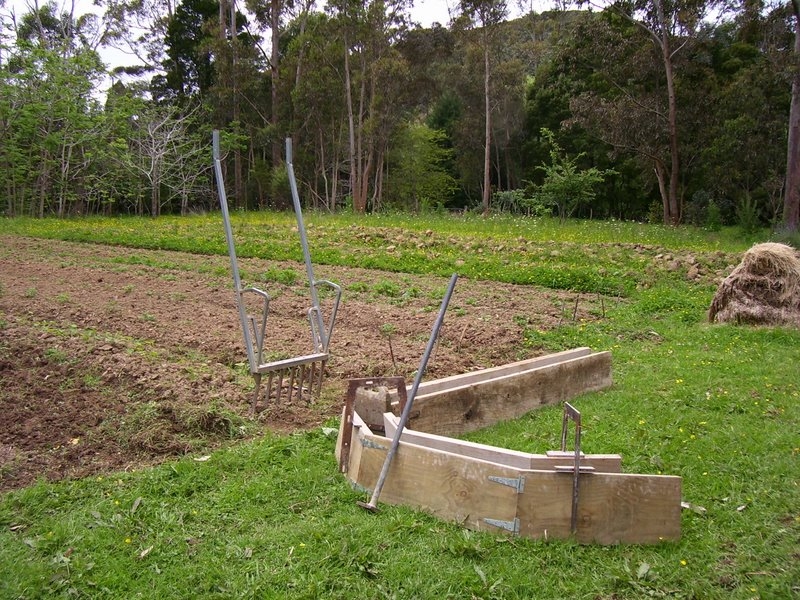
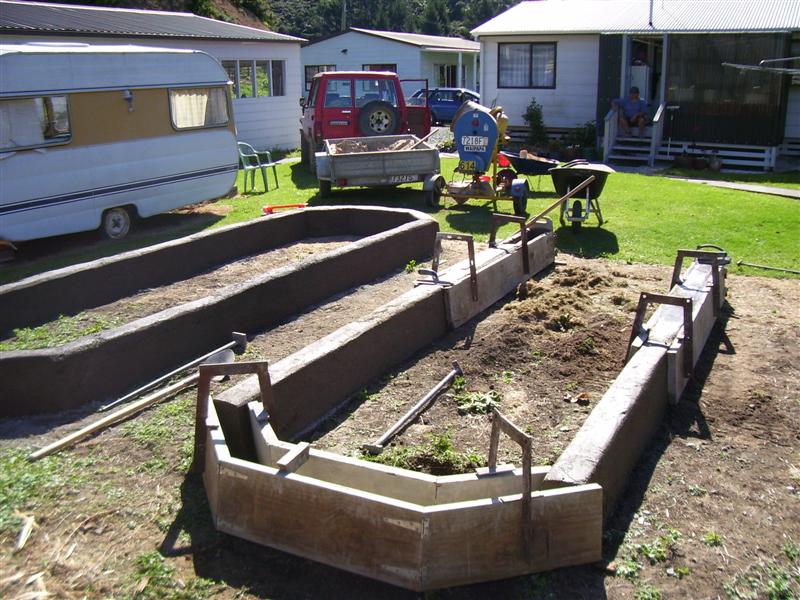
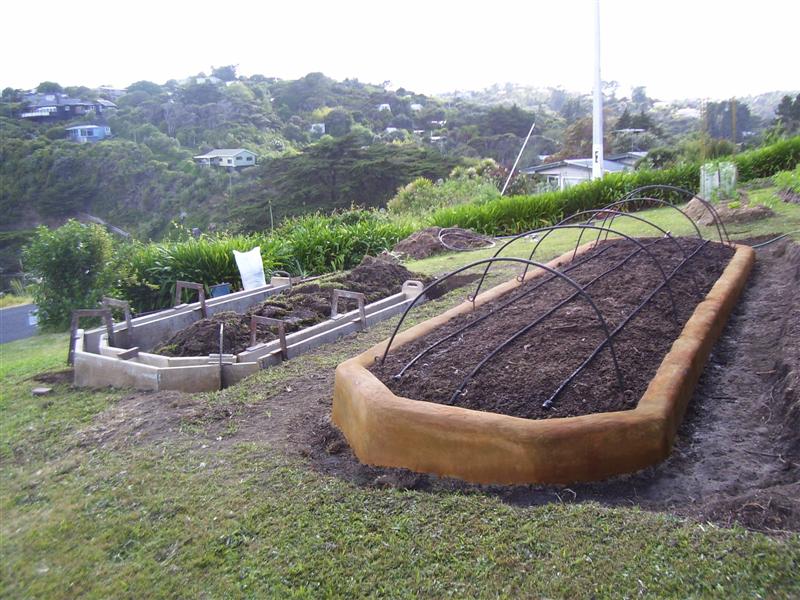
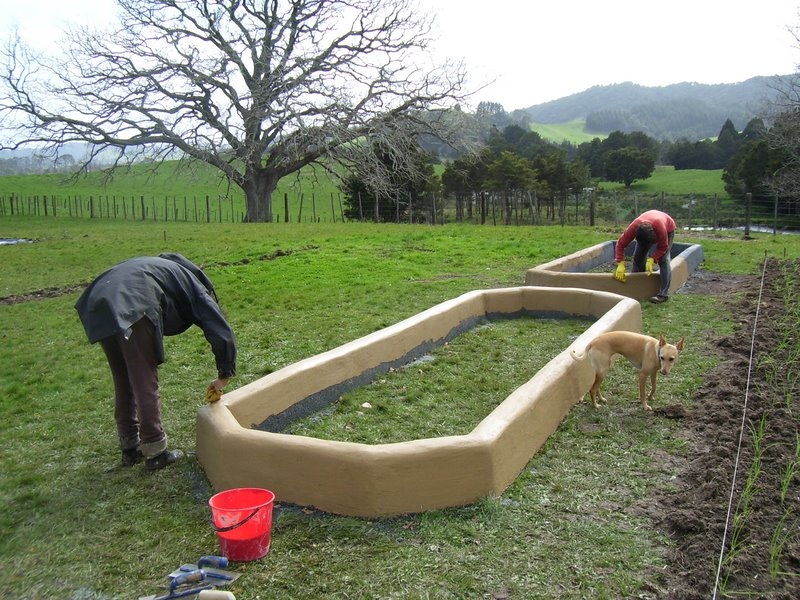
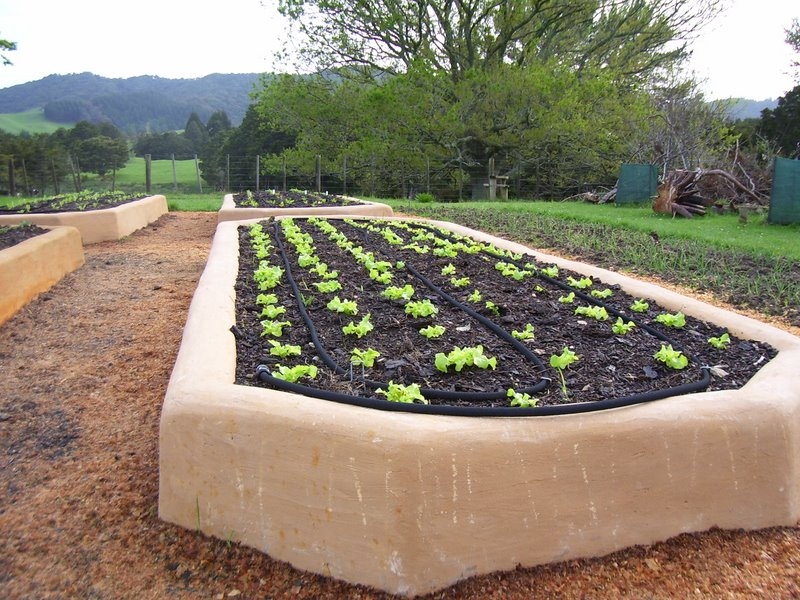
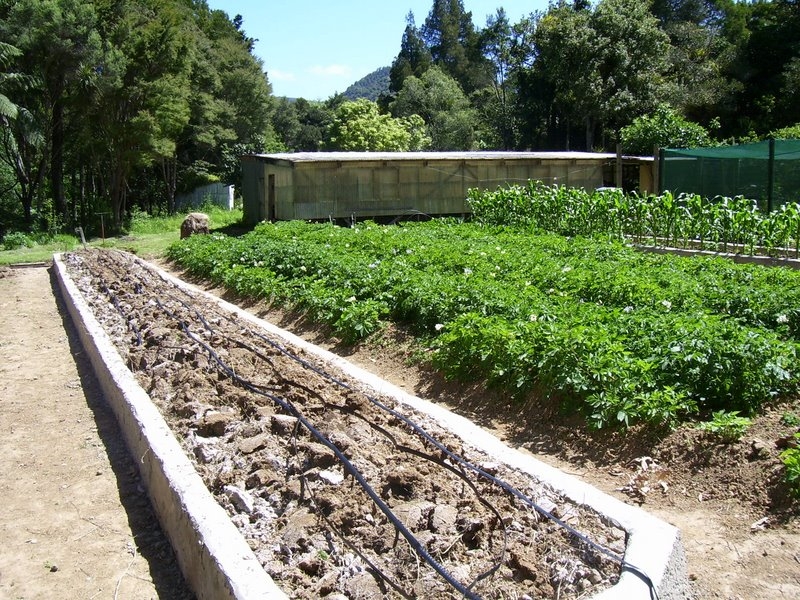
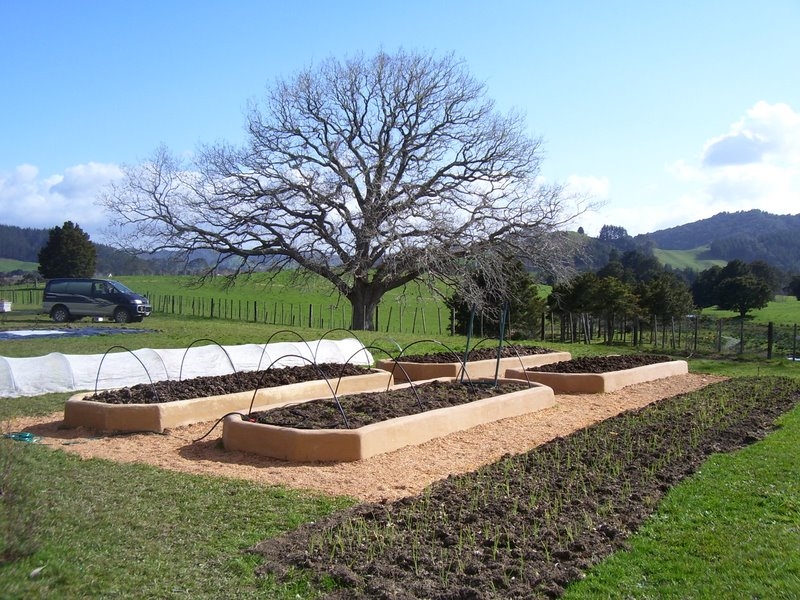
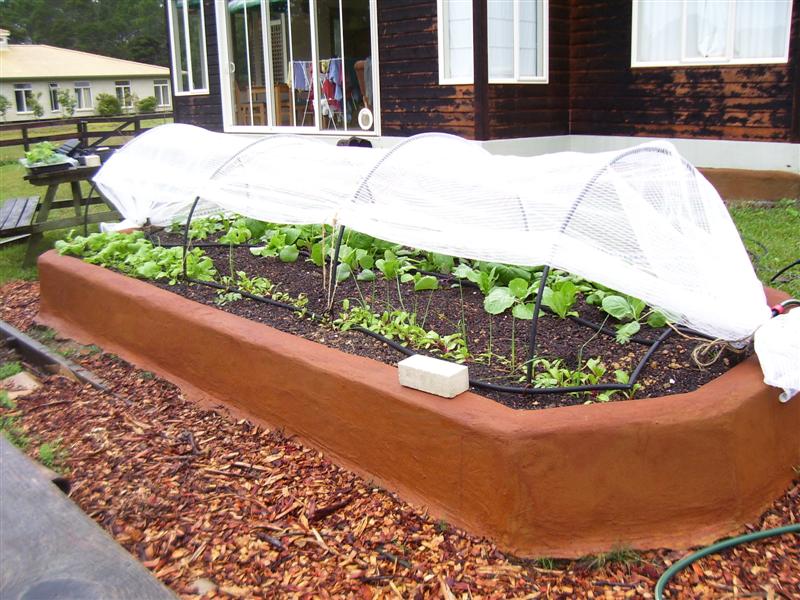
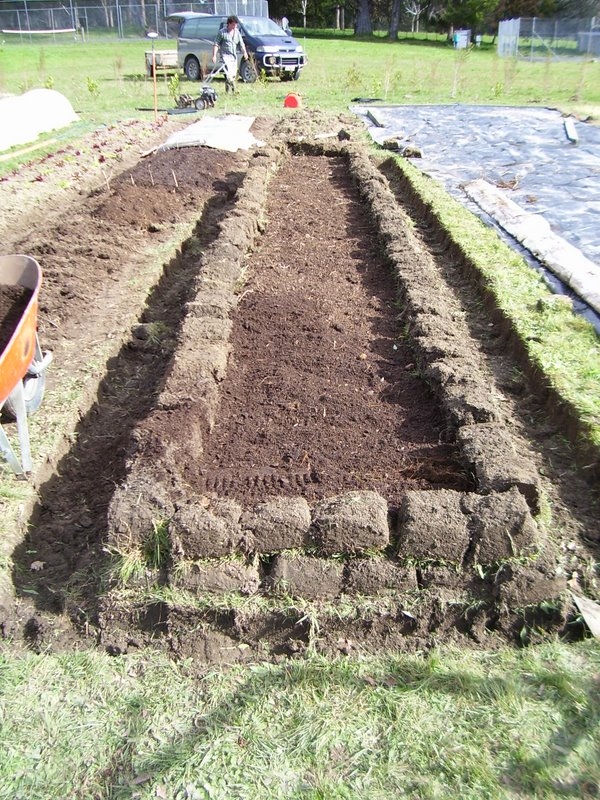
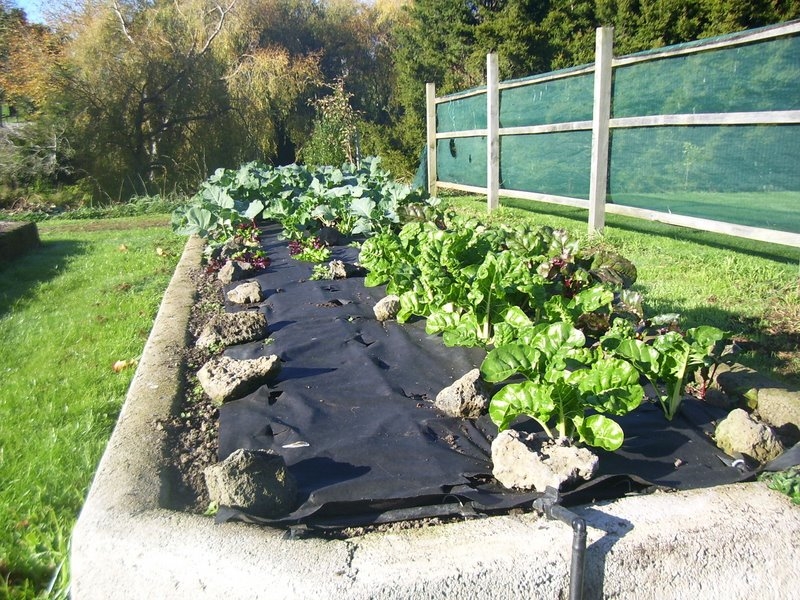
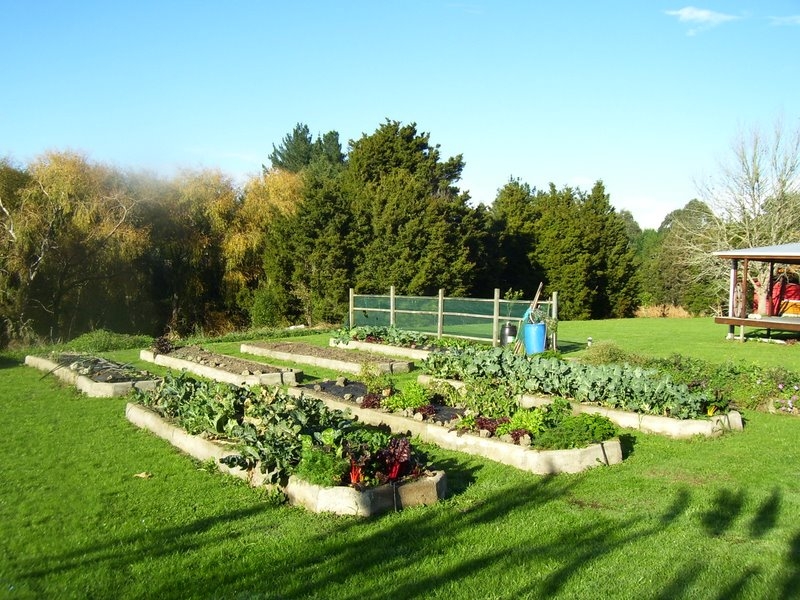
Recent comments
16 weeks 5 days ago
39 weeks 5 hours ago
42 weeks 2 days ago
46 weeks 12 hours ago
49 weeks 6 days ago
1 year 3 days ago
1 year 3 days ago
1 year 12 weeks ago
1 year 29 weeks ago
1 year 41 weeks ago